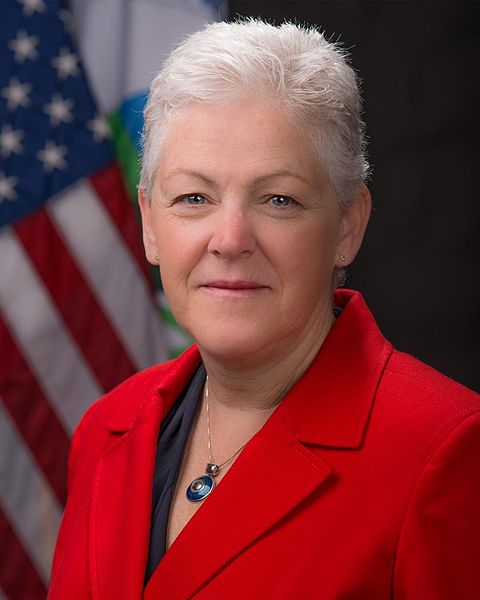Former EPA Administrator Speaks at NYU

Gina McCarthy, the former administrator of the U.S. Environmental Protection Agency under Barack Obama.
October 1, 2018
The consequences of being stuck with outdated environmental laws are already far-reaching. Lack of modernization of energy sources is hurting communities — and poor communities are being hit the hardest.
This was one of the issues that top legal and environmental policy experts addressed at a conference held Friday in honor of the 10th anniversary of the Institute for Policy Integrity at NYU School of Law opening.
The event, held at Vanderbilt Hall, covered topics ranging from natural resource policy to the intersection of economics and environmental policy.
Gina McCarthy, former Administrator of the Environmental Protection Agency, thinks environmentalists and clean energy activists still have significant strides to make in spreading their message.
“We work extraordinarily hard because we firmly believe a democracy is by and for the people, but we do a terrible job telling our story,” McCarthy said in her keynote.
As the current administration rolls back multiple Obama-era clean energy policies, activists are having a tougher time getting their message across to people. In response, Gina McCarthy highlighted the need for environmental policy makers and activists to know their community’s priorities.
“You’ve got to understand what people care about,” McCarthy said. “[We need to] explain health consequences the way people relate to and support grass root organizations.”
Cass Sunstein, former administrator of the White House Office of Information and Regulatory Affairs, explained the hurdle that activists have to get over to reach the public.
“People don’t like thinking they’re spending more money than everyone else,” Sunstein said in his speech. “Maybe with accessories or automobiles, but not with energy.”
With close to zero support on environmental issues from the federal government, states have had to bucker-up and support local advocacy. The Trump administration has repealed, and not replaced, regulation on a multitude of Obama-era policies such as fracking, offshore drilling and production leading to methane waste.
Though her legacy is quickly being erased, McCarthy is not giving up.
“We’ve made progress, and we are not ever going back,” McCarthy said. “Get out and march! That’s what we did in the ’60s and ’70s. Information is still power.”
But getting this information to begin with is still a work in progress, according to Sunstein.
“Many of the issues we perceive as debates about values are generated by absence of proficient information,” Sunstein said of the deficit of scientific research needed to drive environmental policy change.
This lack of scientific information has translated to a lack of legislative action. Cheryl LaFleur, Commissioner of the Federal Energy Regulatory Commission, voiced her frustration with lawmakers’ stagnation on environmental issues.
“I had a congressman tell me, ‘We did act on climate change — not voting was our action,’” LaFleur said. “Where you stand depends on where you sit.”
The partisan back-and-forth is also contributing to the environmental policy gridlock at the state level.
In New Jersey, former Governor Chris Christie pulled the state out of the Renewable Energy Group during his time in office, only to have current governor Phil Murphy put New Jersey back into the group. Among Murphy’s other environmental efforts is his pledge for the state to have 100 percent clean energy by 2050.
Hurricane Sandy was a wake-up call for the state — and McCarthy worries communities won’t support environmental policy until they reap the consequences.
“It’s not real or it doesn’t matter until it hits your community,” McCarthy said.
But the speakers still have hope that there can be deliberate and progressive energy policy if the partisan gridlock holding environmental policies back ends soon.
“We need to support good rulemaking,” she said. “No matter who does it.”
Email Jared Peraglia at [email protected].
A version of this article appeared in the Monday, Oct. 1 print edition.



























































































































































